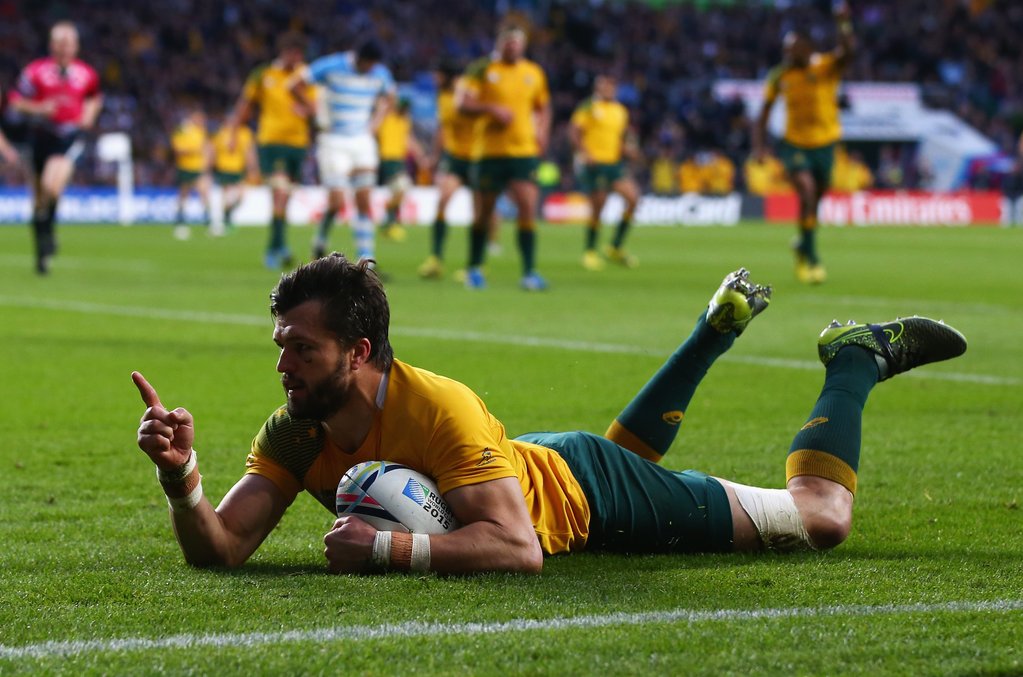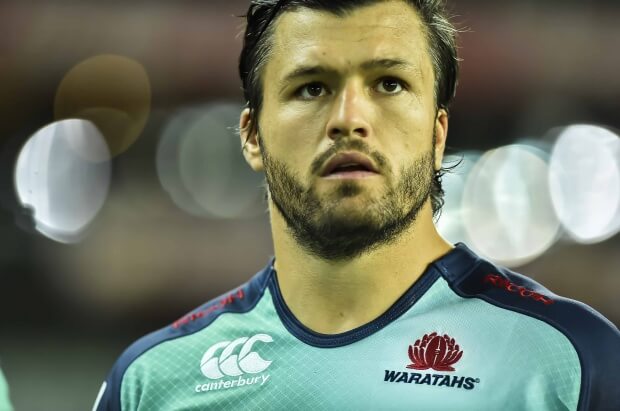Wednesday’s Rugby News looks at a potential revamp to international rugby, the confirmation of a returning Wallaby, Cheika’s plans for his European adventure and a post-World Cup exodus continues for a giant Rebel.
[one_half last=”no”]
A whole new world (league)
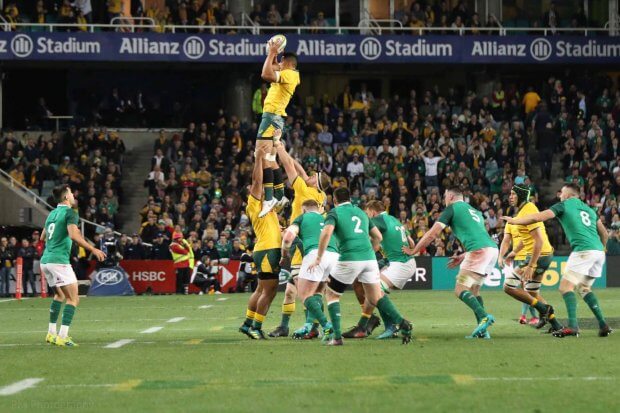
A new World Rugby League has been floated by the major Rugby CEO in the quest to revamp international rugby after the World Cup. The discussions for a new league was high on the agendas as leaders from Tier 1 nations wrapped up a meeting on Tuesday morning at the World Rugby summit in Los Angeles.
The proposed World League concept, which was first mooted by World Rugby deputy chairman Gus Pichot earlier last year, would see a knockout finals format featuring the top nations from the respective northern and southern hemisphere competitions.
It’s not yet known what the outcome of the meeting, with Castle due home in the coming days, but the meeting has the potential to be a watershed moment for international rugby, with World Rugby keen to reduce the number of seemingly random and pointless “friendly” Test matches.
“At the moment 56 per cent of the games in international rugby in the world are friendlies and that’s what we’re looking at and maybe swinging it back towards more meaningful, competitive games and that may be even with interaction between north and south,” World Rugby CEO Brett Gosper told reporters in Sydney in 2018.
“There’s a number of models out there but I think ultimately (north vs south competition) would help add more meaning to a Six Nations or a (Rugby) Championship so it could only be good news for everyone.”
The proposed tournament would be a welcome financial windfall for Southern Hemisphere teams such as Australia, South Africa and New Zealand, which have suffered significant financial downfalls as compared to their Northern counterparts.
The tournament was not expected to interfere with the Super Rugby competition, indicating a September-November timeframe for the tournament, with further discussions about the tournament expected later in the year.
[/one_half][one_half last=”yes”]
He’s b(aa-c)k
As we return for the first edition of Wednesday’s Rugby News for 2019, another inevitable return has been confirmed.
Wallabies outside back Adam Ashley-Cooper has finally been confirmed as a Waratah for 2019, signing a one-year base contract to return to the side that he won the 2014 Super Rugby title with.
This move has been in the pipelines for almost half a year and will unlikely come as a surprise to most rugby fans, the only shock being to those like myself who were under the assumption that he had already been signed by the club until he was missing from their confirmed squad list last week.
Ashley-Cooper has become a stalwart of Australian rugby for over a decade, recording his 117th test cap against Italy in November and Daryl Gibson will hope to draw on this experience to help develop and nurture the younger players in the squad.
“Adam’s record speaks for itself and you cannot replace the international experience that he brings to the team. He is an incredibly talented player and a highly respected leader, and I have no doubt that the younger players in the team will benefit from having him in our environment,” Gibson said.
“His contracting supports our plan around managing our players better in 2019 and further creating depth in our squad.”
Ashley-Cooper has returned from the luxuries of €uropean and Japane$e rugby to Australia in the hopes of making his fourth appearance at a Rugby World Cup, attempting to tie the record held by George Gregan.
“The conversation’s always remained very positive with Cheik. Anyone playing Super Rugby this year’s in the shot to make the Rugby World Cup team, that’s why we play the game,” Ashley-Cooper said.
“That’s why I’m returning to Super Rugby because everyone that plays the game wants to compete at the highest level and that’s the Rugby World Cup.”
Ashley-Cooper’s return to Australian rugby is a nice boost to the outside back stock of Australian Rugby and his selection in the Spring Tour squad suggests that he is prime position to return back to Japan in Gold.
His return also makes him one of the few players currently in the Wallaby set up who have played under both Michael Cheika and the newly minted director of Rugby Scott Johnson, who was the assistant coach under John Connolly for Ashley-Cooper’s first World Cup in 2007.
[/one_half][one_half last=”no”]
No Cheikpoint with Aussie Scott
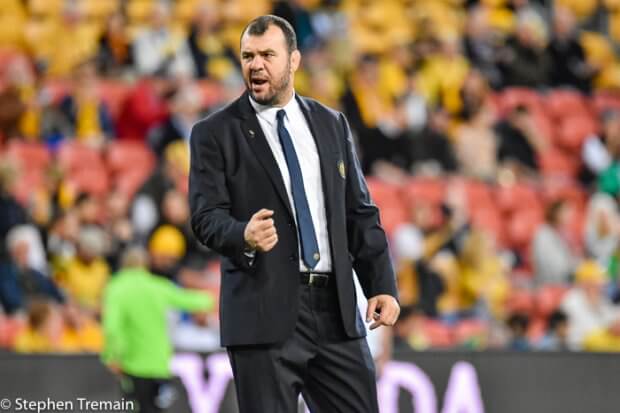
As the Six Nations commences on the weekend, there will be one key observer in Michael Cheika, who will head to Europe to scout out the competition ahead of the World Cup.
Cheika will watch fellow pool C competitor Wales play France in Paris on Friday night, and will then head to Dublin for the Ireland v England blockbuster on Saturday.
The interesting aspect about this trip is that Cheika does not plan to meet with the current Scotland director of rugby and his future boss, Scott Johnson. This comes as Johnson attempts to remain professional within his current role, opting to focus solely on his role with Scotland rugby until the end of the tournament.
Johnson is set to take the role of director of Rugby Australia in mid-March as part of widespread changes within the high-performance structure, which included the appointment of a third selector along with a revamp of Cheika’s support and back-room staff.
Rugby Australia has begun an application process for these positions and has started to call for expressions of interest through its old boys’ union of the Classic Wallaby network.
One of the key figures who has been canvassed for the role is Test legend George Gregan although the 139-Test halfback was not in a position to commit at the time.
Gregan is a figure that has been on the radar of Australian rugby for a considerable amount of time, with Raelene Castle, high-performance boss Ben Whitaker and Cheika himself all previously indicating that they were keen for him to contribute in varying ways to the team’s preparation.
Gregan has one of the smartest brains in rugby union in my opinion and he should be at the top of the list of potential candidates for one of these roles.
Hopefully, despite the strenuous nature and demands of the position, they can find a way to get him involved within the high-performance aspect of Australian rugby.
[/one_half][one_half last=”yes”]
London Calls for Coleman
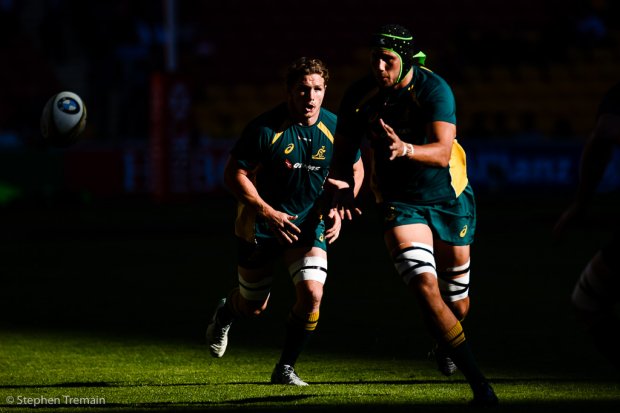
The World Cup season brings a lot of things with it: excitement as we count the days down like Christmas, the bleating from across the ditch about it being “their” year (which to be fair it probably will be), countless arguments about bolters for the squad.
But one aspect of the season that always comes back to Australian rugby is the consistent brain drain of talent that occurs at the end of the tournament.
It appears we have the first sign of the pre Cup exodus in the year as lock Adam Coleman is reportedly set to follow the big money on offer in €urpoe, with the Rebels captain negotiating with English club London Irish for after the World Cup.
Coleman looks set to join fellow Australians Curtis Rona and the bar bandit Nick Phipps who are both expected to sign for the cashed-up London side under the tutelage of Australian Les Kiss.
Coleman’s expected departure continues the trend similar to what’s being seen in the Amazon, as the deforestation of our tall timber continues at the expense of chasing money with fellow Test second-rowers Rory Arnold and Sam Carter also out the door to €urope at the end of the year.
Arnold will depart the Brumbies for French club Toulouse, while Carter – who has been seemed to have fallen out of favour with Wallabies coach Michael Cheika, believing to be in talks with Irish province Ulster.
This reflects the significant challenge that Rugby Australia face in maintaining their playing stocks as competitions such as the Premiership become increasingly aggressive in the poaching of players after the World Cup on the back of fresh investors pumping in £200m million.
Coleman’s departure, along with his fellow second rowers will leave a massive mark on Australian rugby, whilst providing a (Wallaby) golden opportunity for some of the younger players to shine such as Tom Staniforth, Harry Hockings and Darcy Swain.
[/one_half]

